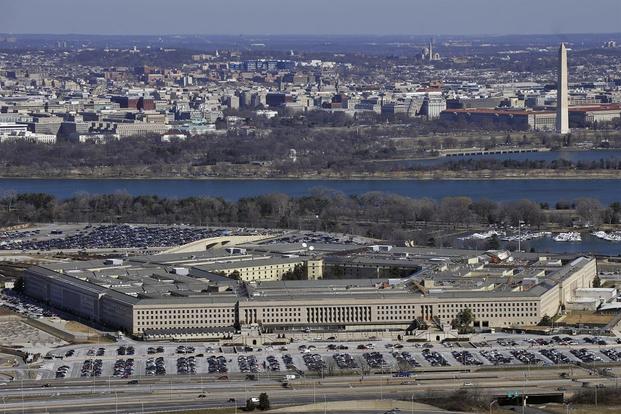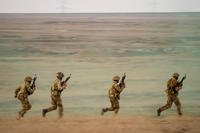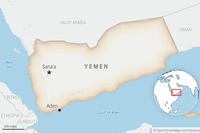The opinions expressed here do not represent those of the U.S. Air Force, the Department of Defense, or any part of the U.S. government.
Air Force Lt. Col. William M. Danyluk is currently assigned to the Pacific Air Forces headquarters at Joint Base Pearl Harbor-Hickam, Hawaii. He is the strategy branch chief in the A5/8 Directorate of Strategy, Plans and Programs. He is a certified Foreign Area Officer with a focus on South Asia and speaks Urdu, Hindi and Spanish.
It wouldn't make sense to ask a maintainer to fly a fighter jet, so why is the U.S. military relying on service members with little to no security cooperation training to develop strategy and plan operations that require close coordination and cooperation with foreign allies and partners?
The National Defense Strategy's No. 2 line of effort, "Strengthening alliances as we attract new partners," is a major shift in strategic security priorities. To successfully execute this new strategy, the Defense Department must change the way it organizes, trains and equips.
The DoD and services must adjust their organizational priorities and cultures, from the headquarters staff down to operational units, to address the NDS' new focus on security cooperation. To effectively strengthen alliances as we attract new partners, Foreign Area Officers, or FAOs, need to hold influential positions at every level of command in every facet of the DoD.
The shift to a focus on allies and partners is similar in scale and scope to the, still unfinished, shift to jointness in the DoD. Although the U.S. military had recognized the importance of joint planning and operations for a long time, it took the Goldwater-Nichols Department of Defense Reorganization Act of 1986 to force drastic organizational shifts, leading to an authentic joint military culture. Similarly, the new security cooperation priority levied by the 2018 NDS requires significant organizational and operational changes within the DoD.
Some will wonder whether this new emphasis on allies and partners should be the role of the Department of State. While the State Department and its cadre of professional foreign service officers are responsible for the overall nation-to-nation relationship, military members maintain the responsibility for executing the military-to-military relationship. The military has always had some level of security cooperation activity, and the recent wars in Afghanistan and Iraq highlighted the need for specialists in the field.
While it is true that military leadership has acknowledged the need for cooperation with our international partners, the prevailing sense until recently was that, while partners were good for votes in the United Nations or legitimizing a war, the U.S. military was better off going it alone.
By highlighting international partners, the 2018 NDS acknowledges the realities of the changing global landscape, where the United States no longer maintains uncontested military dominance. With a weakened position, the NDS recognizes the United States must depend on cooperation with our increasingly capable partners to achieve core security objectives.
The reality is that international partners are ready and willing to collaborate with the U.S. military. It is also true that this kind of collaboration is difficult because of language, culture and bureaucratic barriers. FAOs are trained and equipped to overcome these barriers. Because of these inherent challenges and the DoD's suboptimal security cooperation organization, we are leaving hundreds if not thousands of strategic opportunities on the table. The demand signal is there; the DoD needs to reorganize and put FAOs in the appropriate positions to meet the demand and seize the initiative.
Unlike other major shifts in military strategy where a new mission set often requires developing advanced technology or acquiring expensive weapons systems, security cooperation is executed mostly by individuals. It is not enough to simply have a few FAOs in each embassy or a political adviser to the commander. To achieve success in the 21st century, nearly every mission will need to be conducted in collaboration or at least in coordination with our international partners. To do that effectively, we need to have experts at the leading edge of planning and execution.
Starting at the top with the National Security Council, FAOs are uniquely suited to provide military options to the president vis-à-vis our international partners. Similarly, on the multitude of headquarters staffs throughout the DoD, FAOs need to have direct access to commanders in order to provide advice and options when working with partners.
To provide options, FAOs need to be aligned with the staff sections under the commander as each function develops their own strategies and plans working with partners. The operational units that receive direction from the staffs need to have embedded FAOs because they are the organizations tasked to deal directly with partners. Just like a commander would not task a mechanic to drive a tank, commanders cannot task a standard unit planner to coordinate with international partners.
Planning and communicating with international partners requires a special skill set that takes years of schooling and experience to become proficient. The FAOs with these skills and experience need to be the ones crafting policy, developing strategy, and assisting units to successfully execute the mission.
In an ideal world with limitless budget and human resources, we would provide FAO training to every military member because, at some point, all service members who serve more than 10 years will deal directly or indirectly with international partners. The language, cultural orientation and master's level specialized education requirements make it unrealistic to provide the roughly two-year FAO training to all. However, every service member needs a basic level of security cooperation training, along with recurring training that builds throughout their careers.
Finally, to achieve the recommendations laid out above, we must have a robust security cooperation enterprise that develops a strategic vision, advocates for resources, influences policy, attracts talent, and trains security cooperation professionals. These actions will grow the FAO talent pool required to ensure FAOs and civilian security cooperation specialists with the right training and experience are placed appropriately at all levels and across all DoD functions to achieve the 2018 National Defense Strategy directive of strengthening alliances as we attract new partners.
-- The opinions expressed in this op-ed are those of the authors and do not necessarily reflect the views of Military.com. If you would like to submit your own commentary, please send your article to opinions@military.com for consideration.















